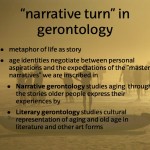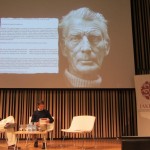 I’m just back from a great conference at the University of La Laguna, on Vulnerability, Justice and Global Ethics. I have been off the bioethics frontline for a while and conferences help us all touching base again, recovering an awareness of what is going on in the field, what the main challenges are and how can they be tackled. I am really grateful to the organising committee, as well as to all the colleagues and friends whom I met in these two days, for doing all the hard work necessary for this conference to happen. This conference was particularly hospitable and well-run. Continue reading
I’m just back from a great conference at the University of La Laguna, on Vulnerability, Justice and Global Ethics. I have been off the bioethics frontline for a while and conferences help us all touching base again, recovering an awareness of what is going on in the field, what the main challenges are and how can they be tackled. I am really grateful to the organising committee, as well as to all the colleagues and friends whom I met in these two days, for doing all the hard work necessary for this conference to happen. This conference was particularly hospitable and well-run. Continue reading
Tag Archives: literature
Active and healthy ageing
Ageing is one of the main challenges of our time. We live longer, but for this to be a real achievement it has to be better understood and socialised. Active and Healthy Ageing (AHA) is a complex phenomenon and it requires a multidisciplinary approach such as the one SIforAGE is providing in Europe.
That’s why last Friday SIforAGE, GISME and Jakiunde organised a public seminar in the framework of the Krisiak project, aiming at understanding crises as opportunities to develop social innovation, creativity and social change.
Bioethics, literature, & narrative autonomy
Last summer we spent two very good months at the Philosophy Department, University of Bristol. Their wonderful hospitality made it possible for me to finish an edited volume that is forthcoming, and also this article, which I presented in a workshop there and has just been published in Cambridge Quarterly of Healthcare Ethics, first view. Continue reading
Land art, land ethics?
Muchos libros de ética ambiental han acabado por serlo de manera involuntaria. Comenzaron como diarios, como el Sand County Almanac de Aldo Leopold, que puso en circulación la “ética de la tierra” en un libro de ensayos y excursiones al aire libre. Y, naturalmente, Leopold seguía la escuela de Henry David Thoreau, el autor de Walden. El libro que nos ocupa aquí pertenece a esta tradición ambientalista accidental o a su pesar, aunque renuncie expresamente al moralismo. De hecho, cuando el autor anota las razones por las que sale a caminar, una de ellas es que “solo por aquí la naturaleza puede regalarme algo insospechado y que no necesita moral” (149).
Continue reading



